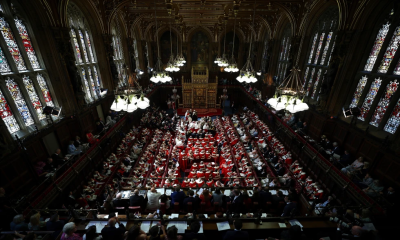In a rare move, the Pentagon on Thursday released a de-classified video showing Russia`s intercept of a U.S. military surveillance drone downed over the Black Sea two days ago.
It was the first direct U.S.-Russian incident since the Ukraine war began, worsening already tense relations between Washington and Moscow.
In the video, a Russian Su-27 fighter jet comes very close to the U.S. MQ-9 drone and dumps fuel near it, in what U.S. officials say was an apparent effort to damage the American aircraft as it flew over the Black Sea.
It also shows the loss of the video feed after another close Russian maneuver, which the Pentagon says resulted from the Russian jet`s collision with the drone. It ends with images of the drone`s damaged propeller, which the Pentagon says resulted from the collision, making the aircraft inoperable.
The video, which is about 40 seconds long, has been edited by the U.S. military for length but shows events in a sequential order, the Pentagon said.
Russia has denied U.S. accusations that its jets acted recklessly in the incident on Tuesday over the Black Sea, and instead has blamed "sharp maneuvering" by the drone for the crash, claiming its jet did not make contact.
The incident over international waters was a reminder of the risk of direct confrontation between the United States and Russia over Ukraine, which Moscow invaded more than a year ago and which Western allies have supported with intelligence and weapons.
A U.S. official, speaking on condition of anonymity, said Russian ships had been seen near the area where the drone had crashed, though they did not appear to have recovered any parts of the drone yet. It was not clear if they were still in the area.
Washington has said that any recovery efforts relating to the drone would be difficult because of the depth of water in the region. It said it has taken measures to ensure that no sensitive information can be gleaned from the remains of the drone.
The release of the video followed separate calls on Wednesday between the top U.S. general, Mark Milley, and his Russian counterpart, Chief of the General Staff Valery Gerasimov, as well as between U.S. Defense Secretary Lloyd Austin and his Russian counterpart, Sergei Shoigu.
In remarks to reporters on Wednesday, Milley said it was clear that the intercept and harassment of the drone by Russian jets was intentional, but it was unclear whether the Russian pilots meant to slam their aircraft into the drone -- a move that could also put the Russian aircraft at risk.



-20260219110716.webp)
-20260219054530.webp)


-20260218060047.jpeg)
-20260216055149.webp)























